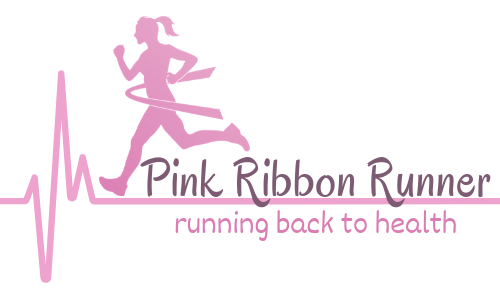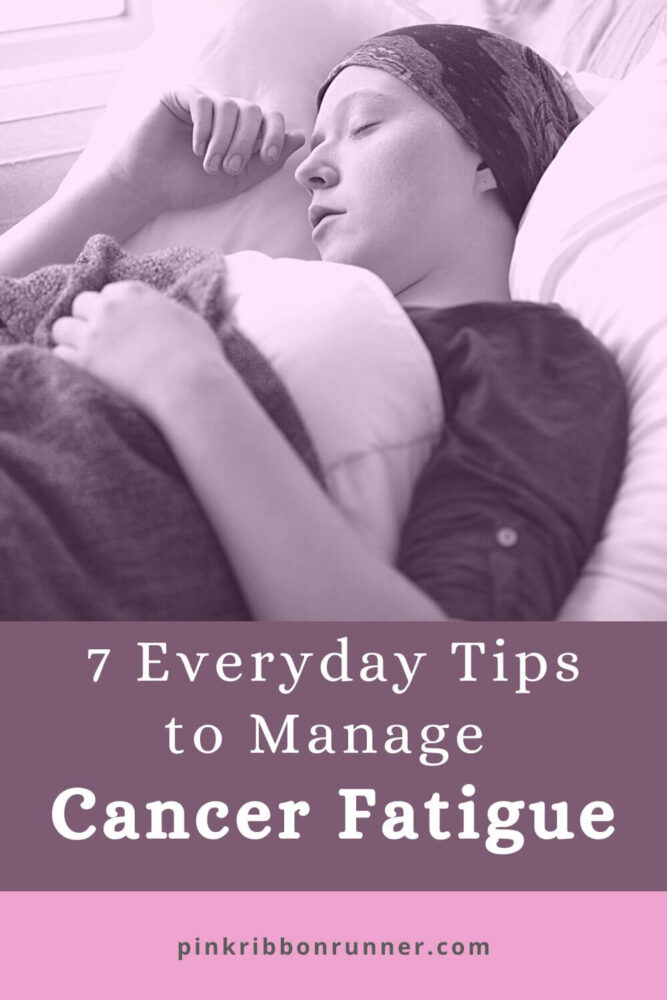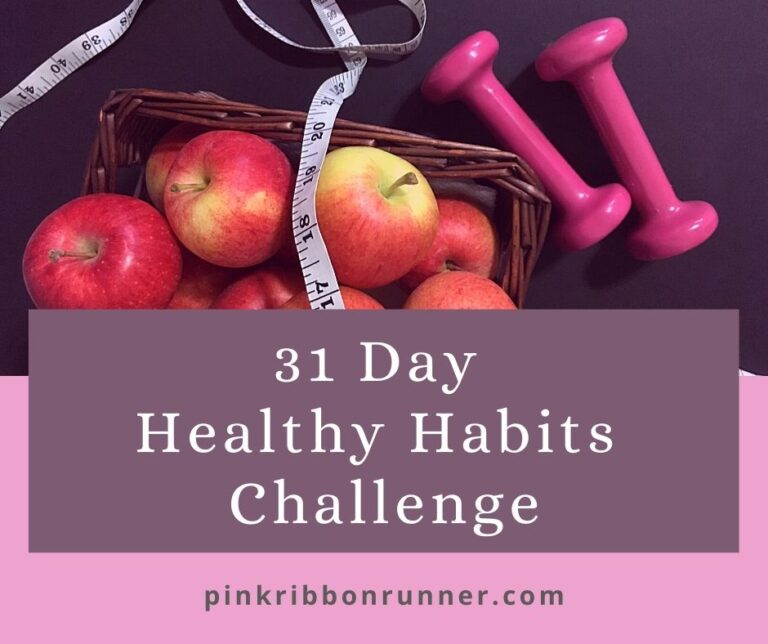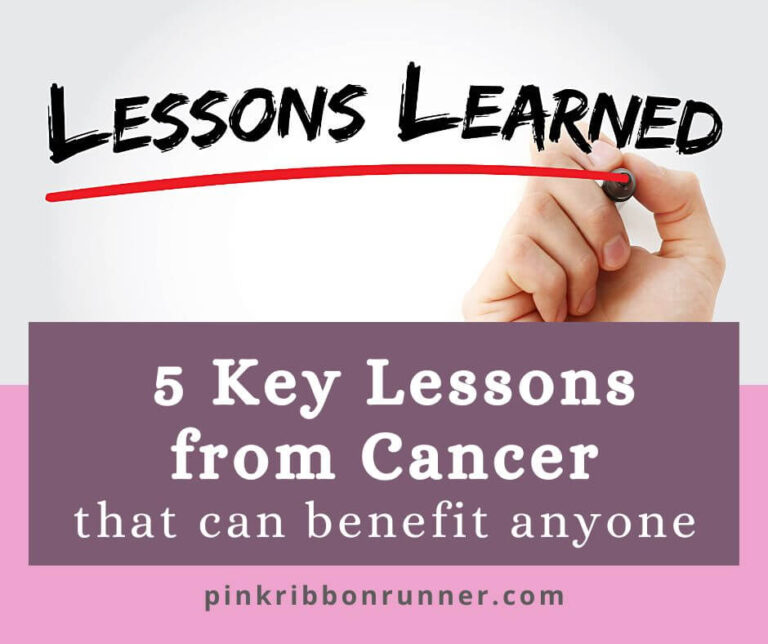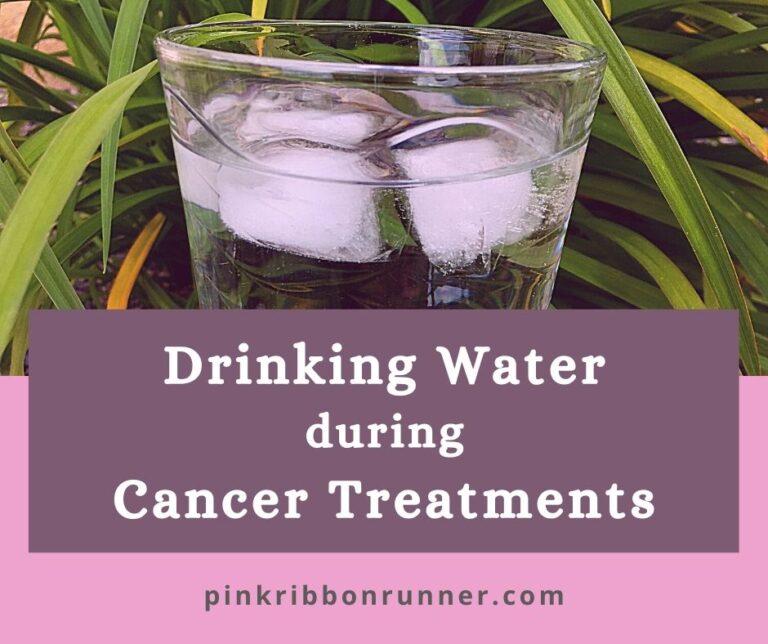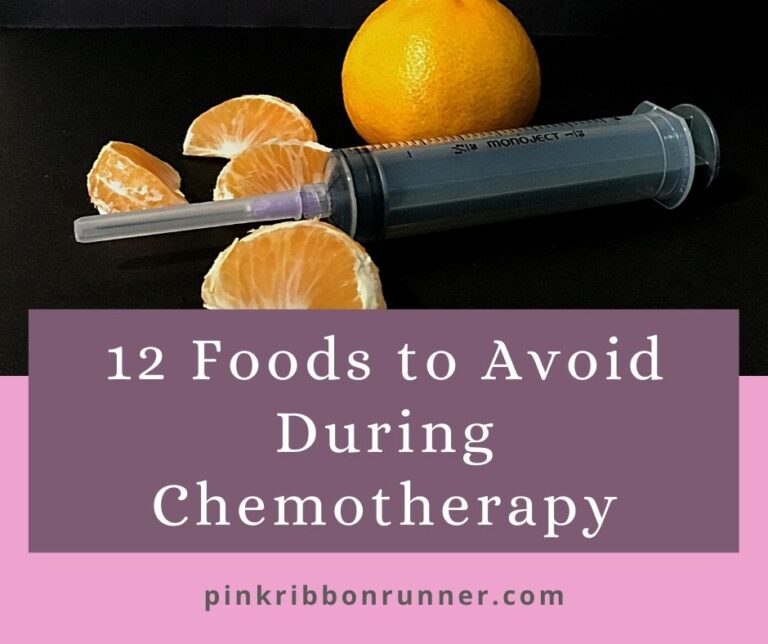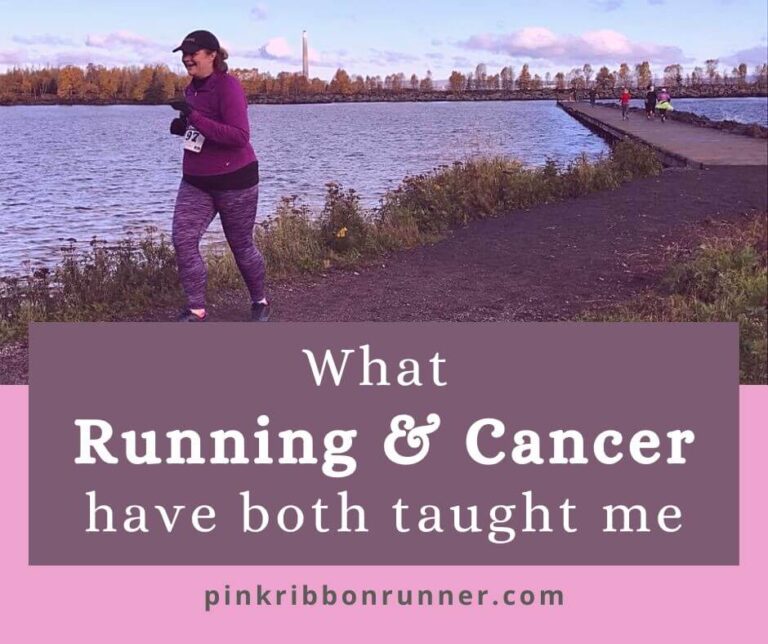7 Everyday Tips to Manage Cancer Fatigue
Cancer fatigue is the most common and distressing side effect of cancer and cancer treatments. It has been reported in almost 100% of patients and survivors in various stages of care. It affects every aspect of daily life, including the work, social and personal lives of cancer survivors. The profound tiredness that patients feel is often not acknowledged by their doctors, as it is not well understood and difficult to manage medically. This article gives insight into cancer-related fatigue and offers tips to help overcome this debilitating side effect.
What Is Cancer Fatigue?
Cancer fatigue is often reported as more distressing to cancer patients than pain or nausea. It is a profound exhaustion with varying components of physical, emotional, and mental tiredness. It is different from normal tiredness in that sleep does not help restore energy.
Cancer-related fatigue can occur at diagnosis, during treatments, and after treatments are completed. Some patients will even feel tired before a diagnosis, which may have prompted them to seek a doctor’s advice.
The tiredness impacts a patient’s life in many ways. It can alter mood, make daily activities difficult, affect employment, and impact relationships. It negatively impacts the quality of life of many cancer survivors.
There may be other medical reasons for your tiredness, such as low thyroid levels or anemia. So, it is important to discuss fatigue with your doctor. Your doctor may order some tests to investigate your symptoms.
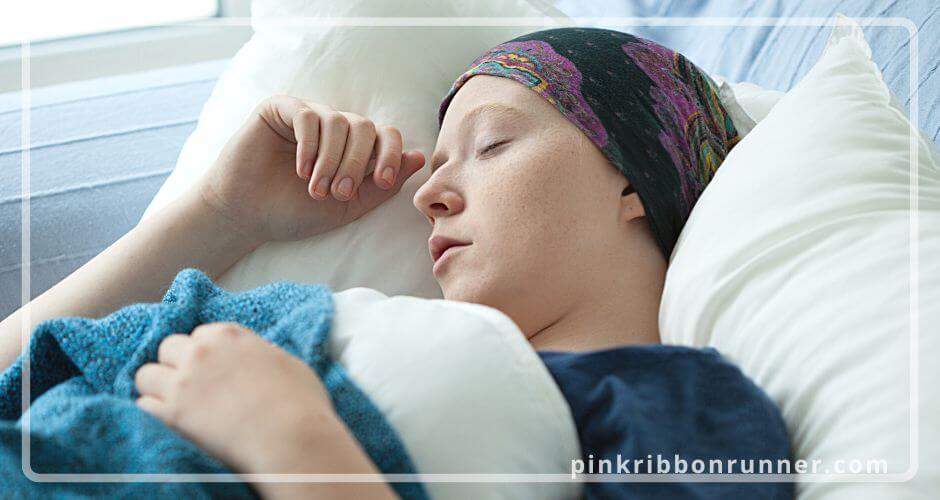
What are the Signs of Cancer Related Fatigue
Cancer patients experience side effects in their unique ways. The severity of tiredness varies amongst survivors. However, there are some common symptoms of cancer-related fatigue.
The tiredness is often profound, feeling more like complete exhaustion. Arms and legs may feel heavy, making it an effort to move around. These feelings do not go away with rest or sleep. Often those with cancer fatigue are sad, frustrated, irritable, or lose interest in things they once enjoyed. Work and chores are difficult. There is no energy for friends or an active social life. Depression can also set in.
Cancer survivors report that cancer-related fatigue is one of the most debilitating side effects. Some patients can’t even get out of bed or need help taking care of themselves.

Why am I so Tired After Cancer Treatments?
Cancer treatments are hard on the body. Not only do the drugs and radiation target cancer cells, but they also affect other healthy cells in the body too. It all takes its toll. You need the time and energy to heal after treatments are finished. And this can lead to cancer-related fatigue.
What Causes Cancer-Related Fatigue?
Many cancer patients feel like their fatigue is in their heads. It affects your ability to think clearly and can wreak havoc with your emotions. It is very frustrating for those who have this cancer side effect.
While not yet well understood, cancer-related fatigue seems to be caused by the body’s response to inflammation. Inflammation chemicals, such as cytokines, released during cancer treatments, from medications, and by the cancer itself, interfere with cortisol metabolism. Altered cortisol levels interfere with sleep and circadian rhythms. The ultimate result is that you feel very tired.
So, cancer-related fatigue is a true medical phenomenon that should be discussed with your cancer care team.
What is the difference between Cancer Fatigue and Normal Fatigue?
Let’s think of our energy level like a battery. Most normal people are fully charged when they wake up in the morning. Gradually, throughout the day, their battery slowly depletes from all the activities and stress of daily living. Finally, when their body’s battery is drained, they feel sleepy. Then they fall asleep in bed to recharge and start the next day with a fully charged battery again.
But when you are dealing with cancer and its treatments, you never fully recharge. The tiredness does not go away with sleep or rest. It is like having a faulty battery that is incapable of being fully charged.
All cancer patients will experience fatigue to varying degrees during their treatments. For some, this can feel extreme and distressing. And for a few, this will continue for years after treatments have stopped.

Are Medications for Cancer-Related Fatigue Available?
Some studies have explored medications to help with cancer-related fatigue. Researchers have looked at stimulants, growth factors, antidepressants, and other pharmaceuticals for their usefulness in treating cancer fatigue. One drug, methylphenidate, showed promise. However, the research data is conflicting. To date, there are no generally recommended medications to treat this debilitating condition.
Be sure to consult with your oncologist about the benefits and risks of taking medications for cancer-related fatigue.
Does Acupuncture Help with Cancer Fatigue?
Studies on the usefulness of acupuncture in treating cancer-related fatigue have shown mixed results. However, given that some patients’ energy levels improve, and the low risks associated with acupuncture treatments, it may be worth exploring.
Does Getting More Sleep Help with Cancer Fatigue?
Unfortunately, getting more sleep does not help with cancer-related fatigue. Often, cancer patients suffer from sleep disturbances or interrupted sleep, which is not restful. Addressing any underlying sleep abnormalities will help with your overall quality of sleep. However, simply increasing the quantity of sleep does not help most cancer survivors overcome their tiredness.
Are There Foods or Supplements for Cancer-Related Fatigue?
In general, cancer survivors should adopt a healthy diet for their overall health and well-being. Ensuring adequate quality protein and eating lots of vegetables is good practice for us all. Diets aimed at reducing inflammation, such as Mediterranean and plant-based diets, may reduce fatigue.
However, when it comes to specific foods, the research data has yet to identify foods specifically for tiredness from cancer. There have been some studies suggesting that ginseng, ginger, guarana, and probiotics may be helpful.
However, the nutrition research is conflicting, and no dietary recommendations are currently available specific to cancer-related fatigue. More research is underway, so we may see additional guidelines published in the future.
How to Overcome Cancer Fatigue
Most cancer survivors will overcome cancer-related fatigue with time. Generally, sleep cycles and energy start to return 6 months after treatments are finished. However, depending on the type of cancer and the combination of treatments, cancer fatigue can last for years post-treatment.
Let’s look at 7 tips to help you manage cancer fatigue now. These tips were collected from studies on cancer-related fatigue. As well, cancer survivors have shared that these tips have helped them improve their daily lives.
7 Tips to Manage Cancer-Related Fatigue
1. Exercise
It may sound counterintuitive that exercise can reduce fatigue, but the research shows that working out does help you feel less tired. Increasing physical activity does help reduce cancer-related fatigue. Regular cardio exercises like brisk walking, aquatic aerobics, cycling, and HIIT workouts seem to help cancer survivors feel more energized overall.
You don’t need to do an hour at the gym for this to be helpful. Studies show that just 15 seconds of physical activity several times a day can make you feel better. Researchers call these exercise snacks. Over time, you can increase the time you spend working out until you actually can do that hour in the gym.
2. Wellness Training
Wellness training is the regular practice of movements and breathing that benefit your overall well-being. There are several forms of wellness practice you can choose from. Some examples are yoga, qigong, or tai chi. Research has demonstrated that these can help improve cancer-related fatigue.
3. Relaxation Techniques
Relaxation and stress reduction techniques, such as meditation, deep breathing, music therapy, or art therapy, are effective at restoring depleted energy levels.
4. Self-care practice
You are tired, so perhaps it is time to slow down and find a little quiet time to unwind. You deserve this. And it may be just what you need to preserve a little of your energy. So, go ahead and do something for yourself that you will enjoy.
Some ideas for self-care may include taking a bubble bath, reading a favorite book, listening to a podcast, getting a massage, sitting outside sipping tea, or watching a funny movie. Savor this time for yourself, guilt-free.
5. Journaling
There are two ways in which journaling can help you manage cancer-related fatigue.
The first is to keep track of your symptoms and determine when you have the most energy. It will also help you discover what factors are influencing your energy levels, such as activities, social events, medicines, naps, and foods.
The second is to help you manage stress and anxiety that can drain what little energy you do have. Jotting down troubling thoughts can help clear them from your brain. Many studies have shown that people who keep a journal tend to have lower stress levels.
6. Energy Management
Energy management involves using the little energy that you do have effectively. This means you are active when you have the most energy during the day. And you rest or do activities that require less energy when your body’s battery is low.
You may need to make accommodations in your daily schedule, but making the necessary adjustments will leave you less emotionally drained, more productive overall, feeling fulfilled, and improving your quality of life.
On days or at times when your energy is low and you still must do a task, ask for help. You don’t have to manage alone. So, let others help you when you are struggling.
7. Bright Light Therapy
Bright Light Therapy involves using a full spectrum lamp at 10,000 lux for about 30 – 90 minutes after waking in the morning. It is considered safe at this level and helps to reset your circadian rhythm. One study showed a 17% reduction in the tiredness of cancer survivors after 4 weeks. Mood and overall quality of life were also improved in these patients.

I hope these tips help you overcome your cancer fatigue. I was one of the survivors who experienced this side effect for years after my treatments were finished. Simply going about my day was very difficult and frustrating. But, I also know that it is possible to adjust and live a happy life again.
